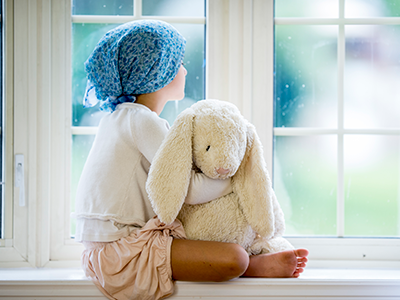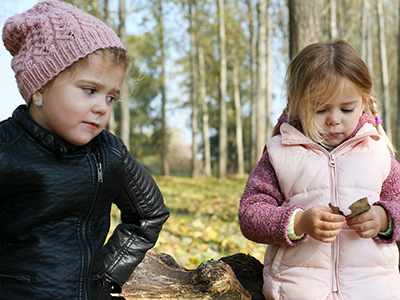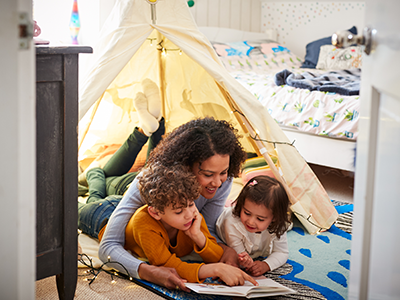We know that rapid changes in the environment, like school closures, can be stressful for everyone. This is especially true for children and adolescents, who often look to adults for guidance and cues on how to respond. Here are some tips for managing your child’s time out of school, for children of all ages.
Keep things consistent and predictable as much as you can (while making needed adjustments)
Consistency and predictability are keys to establishing healthy habits and routines for your child. These things are especially important in early childhood. However, these can be some of the hardest things to preserve when unexpected situations happen.
During this time of transition, parents may want to think about how they’re responding to their child – are their responses consistent and predictable? This goes for things from house rules to rewards. For example, if you have a no hitting rule for your child’s behavior with siblings, it makes sense to keep that rule consistent. Similarly, if your child doesn’t typically eat just ice cream for dinner, then it’s probably not appropriate today either.
Try to stick to your child’s regular routine
This means keeping up with your regularly scheduled activities (like having dinner together as a family) and continuing your daily schedule (like keeping bedtime and wake-up times the same). Making a structured schedule for your child may help create a sense of normalcy and provide balance between activities. Be flexible and make adjustments as needed, such as if you are also teleworking from home, while also considering what your child is already used to.
On the flip side, learn to modify your routines to work at home
If your family is staying at home, consider finding ways you can adapt your previous routines that are not possible right now. For example, if your child went to an after-school activity that has been paused, is there a way your child could do a similar activity at home? An after-school arts and crafts club could be mimicked with an arts and crafts station at home.
Build in time for fun and relaxation
Changes in the environment can be stressful, so be intentional about making sure that there is time to do your child’s preferred activities. Look for opportunities to spend time together having fun as a family. Create moments for stress relief by practicing relaxing activities along with your child, like listening to calming music, imagining and describing a relaxing scene together, practicing gentle movement or stretching/yoga exercises and deep breathing together. Managing your own stress and prioritizing healthy coping will model good coping skills for your child, which helps you lead by example.
Keep up with schoolwork
If your child will be completing schoolwork during this time, create a space at home where your child can work effectively. Try to mimic the school environment as much as possible. This means working in a quiet area with good lighting that is away from distractions like the television, video games or cell phones. If your child is working on self-paced classwork, consider setting aside designated time for schoolwork, just like you may already have “homework time” on regular school days.
We know that these unexpected changes and uncertainty can be a source of stress for many children. As schools are rearranging their schedules due to COVID-19, some schools are continuing their activities via online or distance learning. In light of this, Children’s National is proud to offer an additional resource from EVERFI on mental health and wellness (this resource is for educational purposes and should not be used as a substitute for clinical care) for families living in DC, Maryland and Virginia with children in grades eighth through 10th.
This blog post originally appeared in Northern Virginia Magazine online.
 https://riseandshine.childrensnational.org/wp-content/uploads/2020/11/person-being-vaccinated-feature.png
300
400
Rise and Shine
https://riseandshine.childrensnational.org/wp-content/uploads/2017/11/childrens_riseandshine_logo.jpg
Rise and Shine2025-05-15 07:00:242025-05-23 10:39:33Answers to your questions about the COVID-19 vaccine and booster for children
https://riseandshine.childrensnational.org/wp-content/uploads/2020/11/person-being-vaccinated-feature.png
300
400
Rise and Shine
https://riseandshine.childrensnational.org/wp-content/uploads/2017/11/childrens_riseandshine_logo.jpg
Rise and Shine2025-05-15 07:00:242025-05-23 10:39:33Answers to your questions about the COVID-19 vaccine and booster for children























Leave a Comment
Want to join the discussion?Feel free to contribute!